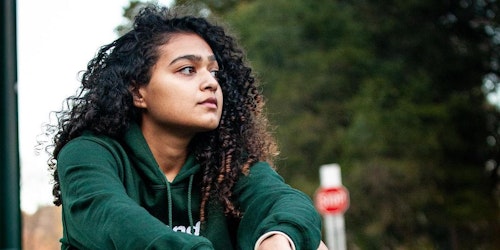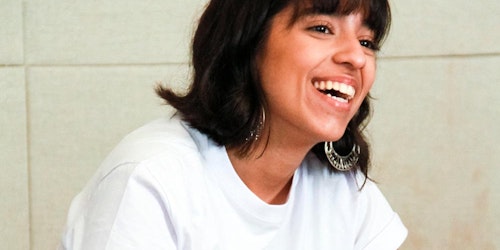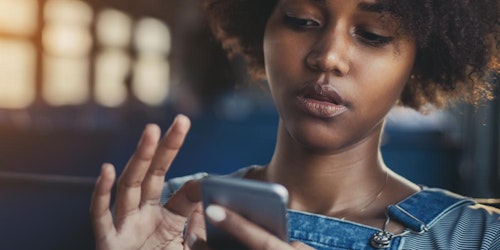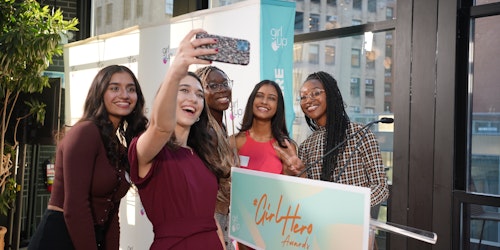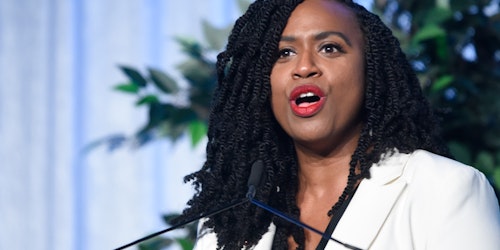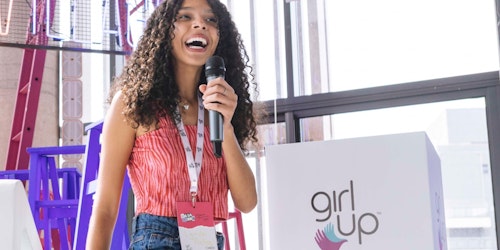Estimated reading time: 7 minutes
On April 6, we at Girl Up are taking a moment to reflect on International Day of Sport for Development and Peace (IDSDP.) This celebration presents an opportunity to recognize the positive role sport and physical activity play in communities and in people’s lives across the globe, as they have the potential to shape human rights and social and economic development.
With this enormous potential comes challenges as well. Ashley Badis is acutely familiar with these challenges and the strength it takes to overcome them. Ashley is an athlete, activist, and student from Hawai’i. She is also the lead plaintiff in a landmark Title IX case covering widespread and systemic sex discrimination against female athletes at the largest public high school in Hawai’i. We spoke with Ashley to learn more about her advocacy journey, the ways in which gender and sports interact, and how she stays strong physically and emotionally.
Aloha, Ashley! Can you tell Girl Up a bit about yourself and your journey in sports?
My name is Ashley Badis. I’m from Oahu, Hawai’i. I grew up playing sports and always liked being active, even as a child. I’ve tried a bunch of different sports from soccer to track. Because I grew up always going to the beach and being surrounded by water, swimming and surfing came naturally to me. So, when I got into high school, I joined the swim and water polo team.
Water polo is an all-girl sport in Hawai’i, so there is not a boys team at all. At my school, we had no place to practice, often starting the season without having access to the pool to work around the boys’ schedule. This led us to practice on a public beach, which is not ideal or safe. We had no female locker room at all; there was only a boys locker room. So, the girls did not have a safe place to change or store equipment. We also did not have bathrooms, so we would use the bushes or run off campus.
Because of this, I am one of the plaintiffs on the Hawai’i Title IX class action lawsuit. In this lawsuit, myself, along with three other girls, have sued our high school and the Oahu Interscholastic Association due to gender inequity.
The case has recently officially settled. We had our final settlement hearing last month, and it just got the final approval from the judge.
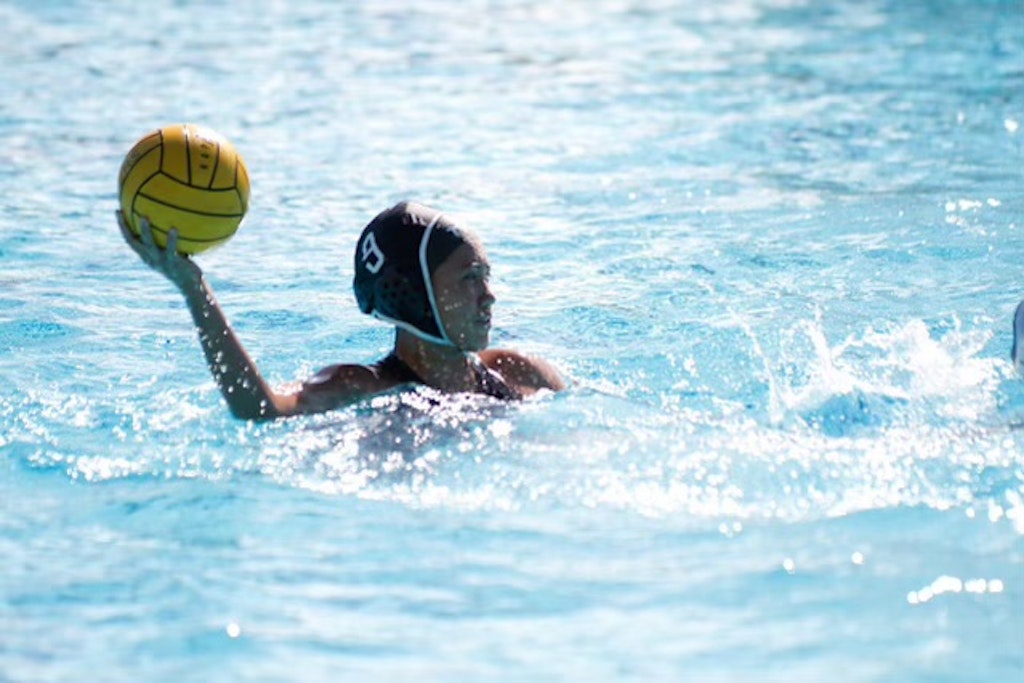
Wow—that’s amazing news. This has been a journey over several years of your life. How does it feel now that it is over?
It’s a huge relief off my shoulders, knowing that we—my amazing support team and the other plaintiffs, these amazing girls with amazing stories—were able to make this change. On the other hand, it’s also really disappointing. It took so long to get to this point, and Title IX has been in place for over 50 years. It’s not only my school that’s not in compliance: there are so many other schools around the state and nation that aren’t. It’s a real shame.
It is. With this in mind, can you tell us more about what gender equity and sports look like for you?
To start, I don’t believe we have reached gender equity in sports as of now. I’ve heard so many stories like mine, from small instances to huge instances, that ultimately result in girls losing out on scholarships or having to change their entire lifestyle because of repercussions and retaliation.
Just being a girl in sports, I’ve had to fight for my right to play. Whereas boys automatically get everything they need to play. In high school, my water polo team didn’t have pool time; we didn’t have coaches. The only reason we ultimately had a coach was because my dad stepped up. We ended up practicing at the beach, because we didn’t have a pool to practice in. When we did voice our concerns, the principal and athletic director threatened to cancel our season.
It’s really disheartening. I hope that with my lawsuit settling, we can help to avoid these kinds of negative experiences involving sports and gender inequity in the future.
Just being a girl in sports, I’ve had to fight for my right to play.
What exactly is Title IX?
In simple terms, Title IX is an American law that helps protect against discrimination on the basis of sex in both educational programs and athletics. It also covers any programs that receive federal funding. It’s important because it helps protect and promote gender equity and sport equity, ensuring both males and females receive equal opportunities and resources in their programs.
What do you wish girls knew about Title IX?
I wish girls knew about it in general! I wish that it was taught in schools. It’s really important for the Department of Education (DOE) to teach their faculty, student athletes, and students, in general, about Title IX. The DOE had 50 years to get into compliance, and they had not done anything at my school.
In a lot of conversations I’ve had with different people, they don’t know what Title IX is—I didn’t even know. For me and my family, we didn’t know the legal aspect; we just knew something was wrong. So, we Googled it and found information about Title IX and the ACLU, the American Civil Liberties Union.
That’s something I’m excited for in our settlement! As part of the terms, we are requiring Title IX education for both the administration and student athletes at my high school. So, there’s going to be a video that’s shown at a mandatory meeting at school.
It sounds like this legal process was an uphill battle at times. What was it like to go through this process? How did you stay strong?
It was an overwhelming process in the beginning. I was 16 years old; I didn’t know what to expect. It was scary to put my name out there and sue my high school. I was scared of retaliation.
But my family has been a great support, which I’m really grateful for. They are my number one supporters. They have been very involved, especially my mom and my dad. My sister is a plaintiff as well, so it was nice to know I had her as well as the other girls to support me. I know a lot of people don’t have the same support in other stories I’ve heard.
My sister was one of my biggest sources of motivation, because she was an incoming freshman at the time. I didn’t want her to experience anything like I did; I wanted her to have a smooth ride and enjoy all the same sports I did. She saw the positive aspects of being in a sport and how impactful that can be.
I think you’ve already started to answer this question- who is your role model?
I would definitely say my parents. Growing up, my dad was always my coach. He stepped up to be my water polo coach, a sport he literally knew nothing about, but he got us from the ground level all the way to the playoffs. My mom is my role model as well. She’s such a hard worker, and she always makes time to support our family. She would be the one to step up and be the “team mom!”
That’s wonderful to hear. The impact of their support is clear, as you represent resilience and strength. What advice would you give to girls who are similarly advocating for themselves?
Don’t be afraid to voice your opinions and your experiences. Speaking up can be really scary, but in doing so, you’ll be helping so many people. If there’s anything I’ve learned through this whole process, it is that your story is powerful. By sharing it, you can raise awareness about your cause.
To see a change in your community, you have to be that change. Speaking up is the first step.
Don’t be afraid to voice your opinions and your experiences. Speaking up can be really scary, but in doing so, you’ll be helping so many people.
This interview has been edited for length and clarity.
Watch this space for more conversations with the world’s most influential female changemakers as part of our ongoing “In Conversation With” blog series!


